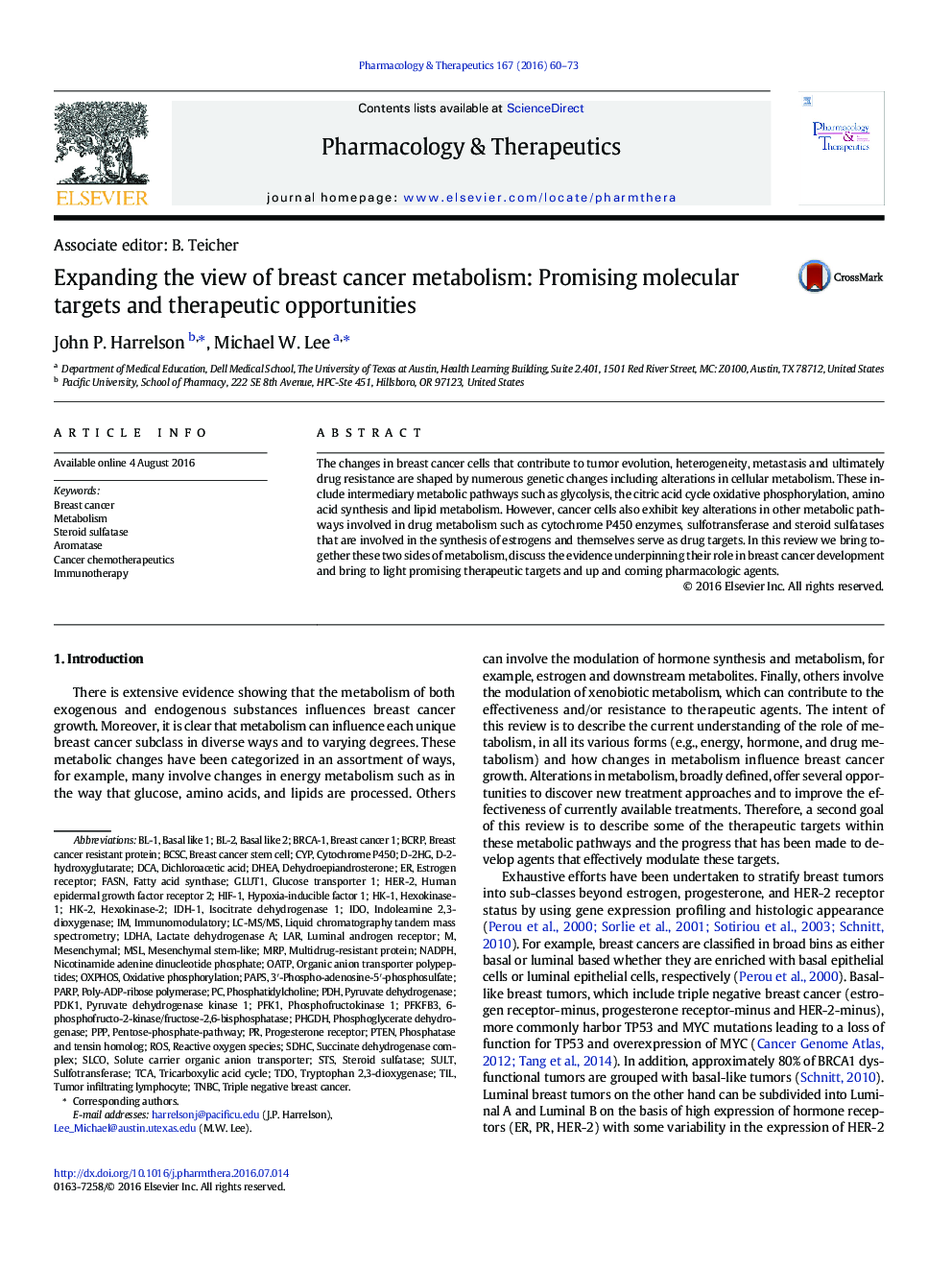| Article ID | Journal | Published Year | Pages | File Type |
|---|---|---|---|---|
| 5557823 | Pharmacology & Therapeutics | 2016 | 14 Pages |
The changes in breast cancer cells that contribute to tumor evolution, heterogeneity, metastasis and ultimately drug resistance are shaped by numerous genetic changes including alterations in cellular metabolism. These include intermediary metabolic pathways such as glycolysis, the citric acid cycle oxidative phosphorylation, amino acid synthesis and lipid metabolism. However, cancer cells also exhibit key alterations in other metabolic pathways involved in drug metabolism such as cytochrome P450 enzymes, sulfotransferase and steroid sulfatases that are involved in the synthesis of estrogens and themselves serve as drug targets. In this review we bring together these two sides of metabolism, discuss the evidence underpinning their role in breast cancer development and bring to light promising therapeutic targets and up and coming pharmacologic agents.
